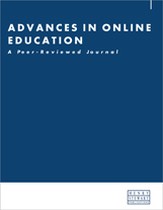Challenges of technology accessibility, computer self-efficacy, computer anxiety and cyberphobia in adoption of e-learning systems among students
Abstract
Integration of emerging digital technology in academic learning is becoming prevalent in higher education. In the current educational environment, it is important to adopt new advanced technology that changes the way learning is processed in academic institutions. Students’ inaccessibility to technologies required in their class, as well as their lack of confidence in using technology, are, however, obstacles in their adoption of new technology for successful continuation of online learning or e-learning. Based on a systematic and extensive review of research in current literature, the study described in this paper investigated the factors that create challenges in students’ technology adoption for their academic learning. The literature reviewed included recent and relevant studies supported by the classical theories in this area. The finding shows that accessibility to the required technology, along with psychological factors such as computer self-efficacy and computer anxiety or cyberphobia, have an impact on students’ adoption of e-learning systems. This paper summarises the current state of relevant knowledge and suggests several strategies to address the challenges of these factors that create obstacles to achieving effective learning objectives in the e-learning environment. The study plans to provide a better understanding regarding students’ accessibility to advanced computer technology and the psychological factors that may affect their successful achievement in e-learning.
The full article is available to subscribers to this journal (subscription is free).
Author's Biography
Bilquis Ferdousi is an Associate Professor in the School of Information Security and Applied Computing at Eastern Michigan University. She holds a PhD and Master’s in information systems. From 2001 she has taught full-time faculty in information assurance and cyber defense, information technology, and information systems programmes. During her 20+ years in academia, Bilquis has developed many undergraduate and graduate curricula and served as coordinator of these programmes. Her current research focus mainly includes use of mobile apps and emerging computer technology for interactive academic learning, cyber security policy and compliance, effect of Internet of Thing (IoT) and cloud computing on data security and privacy, impact of social media on cyber security, social engineering as scheme to break cyber security, human–computer interaction and usability of digital device, effects of psychological and social factors in technology adoption, and gender gaps and under-representation of minority groups in computer technology programmes.
Citation
Ferdousi, Bilquis (2023, January 1). Challenges of technology accessibility, computer self-efficacy, computer anxiety and cyberphobia in adoption of e-learning systems among students. In the Advances in Online Education: A Peer-Reviewed Journal, Volume 1, Issue 2. https://doi.org/10.69554/JWPC8265.Publications LLP
